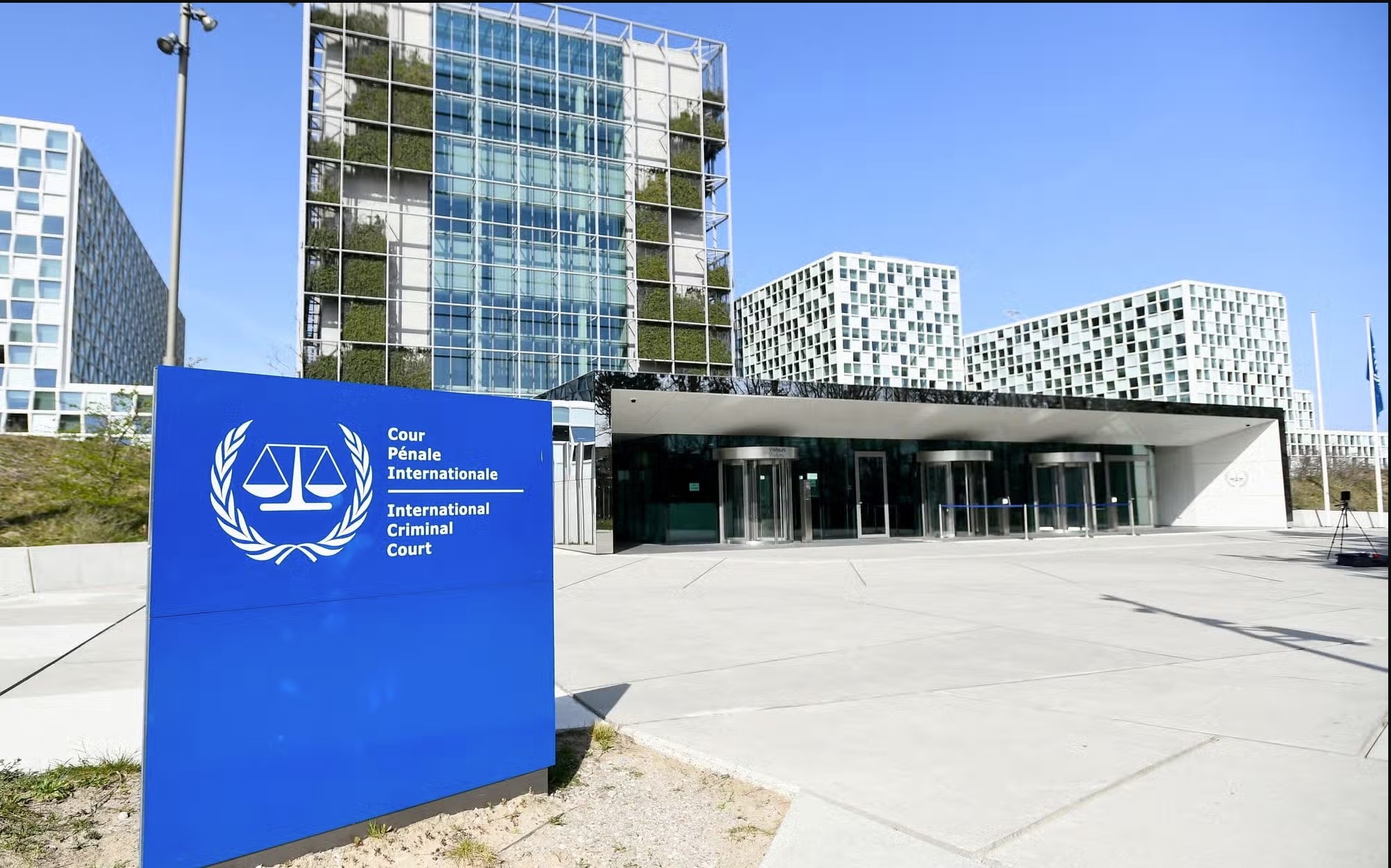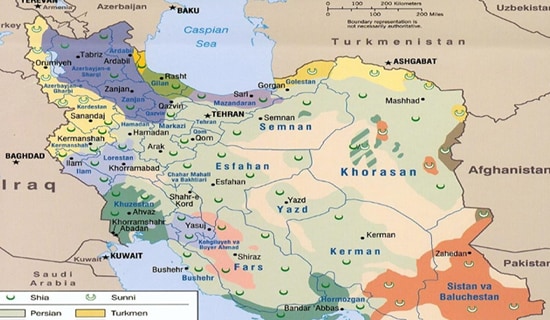New economic data show that Russia's embattled economy is worsening. In January and February 2023, compared to the same period of 2022, the GDP declined by 3.2 percent,[1] while retail sales decreased by 7.8 percent in February year-to-year,[2] including the new passenger car sales that fell by 43 percent.[3] It is also worth noting that the cumulative federal budget deficit in the first quarter was a third larger than the projection for all of 2023.[4] Many experts commented on these data in a highly predictable manner, stressing their highly pessimistic views on Russia's economic perspectives. Indeed, even Russian President Vladimir Putin, addressing the members of the Russian government, admitted that "illegitimate limitations imposed on the Russian economy [by foreign governments] may in fact hurt it in the medium-range term,"[5] insisting, however, that the current situation is under firm control.
Of course, the overall conditions of Russia's economy remain poor, with many industries affected by the sanctions, withdrawal of foreign investors, and the contraction of domestic demand. The European oil embargo together with the "price cap" have caused the "oil and gas revenues" of the federal budget to drop by around 40 percent in the first quarter.[6]
There are no signs showing where a prospective recovery may come from. The IMF forecast about 0.3 percent growth of the Russian GDP for 2023 remains illusionary,[7] to say the least. But even taking all this into account, I would be very cautious to insist that Russia is now experiencing an economic freefall.

(Source: Hse.ru)
In The Coming Months, Russia's Economic Statistics May Be Less Alarming
Before the Russian invasion of Ukraine, the economic forecasts were quite optimistic. The post-Covid recovery was expected to result in 2.8 percent annual growth,[8] and, for at least several months, even the start of the war did not change the situation, as sanctions mostly came into force in April 2022, and the commodity prices shot up almost immediately after hostilities begun.
Hence, the Russian economy advanced by 3.5 percent in the first quarter of 2022,[9] even while the signs of a financial turmoil were already present. As the results for the first quarter of 2023 are delivered, the picture may become even grimmer – but one should consider that all this will change starting from April as the data should be compared to the disastrous spring and summer months of the last year. The same applies to the federal budget deficits, as during the recent months the government has accelerated the funding of the defense industries – toward the end of March, the classified budget spendings rose to 32.6 percent of the total up from 23 percent projected in the 2023 federal budget,[10] which means that producers of weapons and ammunition almost certainly received significantly larger funds that was expected for this part of the year.
Moreover, the fall of retail sales in February might be easily explained by a panic that had affected the market in the first days of war as the consumers rushed to the stores anticipating price hikes and shortages and so pushed February 2022 figures higher. So, I expect that these distortions will wane in the coming months, making economic statistics much less alarming and suggesting that Russia has survived the "first phase" of the wartime "perfect storm."
Nevertheless, none of the above should make one trust that the Russian economy "has resumed sustainable growth," as President Putin is these days trying to make observers believe. Quite to the contrary, several trends are building up suggesting that more difficulties should be expected. I would mark just a few of them.
Real Estate Prices Are Declining Everywhere
While evaluating Russia's economic performance in 2022 and early 2023, one should consider the Russian government's efforts to support several basic industries. Last year, the Kremlin proudly reported that significant growth was recorded in residential construction, infrastructure development, heavy industries and even in oil production. However, most of these advances resulted from significant governmental assistance and therefore may look unsustainable.
The best example might be provided by residential construction, where state-ordered measures are well intertwined with private business incentives and consumer sentiments. In 2022, Russia exceeded the Soviet-era housing figures with 102.7 million square meters of new residential construction completed during the entire year.[11] This was mostly due to the state-sponsored mortgage programs that allowed the citizens to get subsidized loans at six percent per annum for up to 12 million rubles ($160,000) in Moscow and St Petersburg and for up to six million in other cities. The program, continuously criticized by the Bank of Russia,[12] was nevertheless extended till mid-2024 with the interest rate inching up to eight percent but providing new opportunities for families with two or more children (the previous requirement that at least one of those should be born in 2018 or later, is now lifted).[13]
However, the start of 2023 shows that such efforts cannot outweigh both the drop in demand, resulting from growing uncertainty, and the rise of supply, caused by the unprecedented outward migration of 2022 and attempts to sell those apartments that were bought for investment purposes. In recent months the industry retained its 2022 dynamics, but the construction companies report that sales are falling. In fact, except for few "hot spots," like Sochi, that seemingly became the only prestigious summer destination for the Russian elite locked inside the country, the real estate prices are declining everywhere, losing up to 25 percent since last Summer. In Moscow the prices for all apartments sold went down by around 10 percent during the last month.[14]
Hence, I would expect that the industry may contract by 15-20 percent in 2023 (January's results already recorded a 19 percent fall compared to January 2022),[15] causing huge aftershocks, as this sector employs more than 6.3 million people[16] and many other industries depend on it, most notably the metal processing one (in 2022, the construction industry consumed 76 percent of all the steel produced, while machine-building accounted for less than 10 percent of the total). I believe that the decline in the sector may shave off up to 1.2-1.5 percent of Russia's GDP in 2023.
The Military Industry Lacks Professionals And Suppliers
The heavy industries, like the defense sector, also look unsustainable despite recent enormous investments. In fact, increasing budget spending does not always lead to tangible results. For example, military analysts report that the defense sector cannot deliver what the army needs these days – e.g., the number of shells fired daily by Russian troops in Ukraine decreased from around 70,000 in March 2022 to less than 10,000 now, while the Defense Ministry seems to be getting prepared to refurbish the tanks produced in the Soviet Union 60 years ago.
It looks like the Russian leadership is becoming increasingly disappointed by the developments in the sector. At a meeting of the Military Industrial Commission, former Russian President Dimitry Medvedev read out a telegram from Joseph Stalin, dated September 17, 1941, in which he asked that producers "fulfill the orders on time," stating that if the employees would "violate" their "duty," he would "smash" them "like criminals."
All the rhetoric may not help, as the military industry lacks much needed professionals and many suppliers are unable to deliver the expected spare-parts. One demonstrative example might be a postponement of the construction of a new-generation Russian icebreaker Lider that already became 50 percent more expensive with no clear timeline for when it will be delivered, partly because the Russian army destroyed the supplier plant in Ukraine's Kramatorsk, where many components were expected to be produced.[17]
Several other industries are also suffering. In November 2022, the civil aircraft production delivered the SSJ-100 regional jet, but plans to build new ones without Western-supplied elements remain a pipedream. I would expect that the Russian heavy industries will resume their decline in the second half of 2023 with a loss of up to one percent of GDP.
The Crisis In The Oil And Gas Sector
Finally, the oil and gas sector will also contribute to GDP contraction. The year 2022 became the record year for oil and gas revenues (U.S. economists have recently estimated that Russia got billions of dollars in "excessive" oil and gas revenue last year), and the share of this sector in Russia's GDP peaked at 21.7 percent.[18] However, in recent years, Russia has made a significant progress in oil processing, producing twice the amount of gasoline and other oil products it needs for domestic consumption (in Russia's oil export the share of crude fell below 50 percent compared to the Soviet-times average of 75 percent due to these developments) – and while Russia has seemingly succeeded in rerouting its crude exports (the shipments to India, for example, shot up by 22 times last year),[19] the diversification of the oil products supplies would be a much harder task and may easily result in up to 25-30 percent decline in their production by the end of 2023 compared to only five to seven percent contraction in crude output.
Moreover, the crisis in the oil and gas sectors may result in price increases of natural gas and gasoline in the domestic market (the latter's price has been largely unchanged in 2022 compared to the overall official inflation of 11.9 percent)[20] that may contribute to a drop in their consumption that would put even larger pressure on the entire economy.
Conclusion
To summarize, I would argue that these days the Russian economy stays at a crossroads with completely opposing trends affecting its future development. From a purely statistical point of view, one may expect significant change from worse to better, as the second-quarter switches the basis for comparisons from a relatively good period of last year to the most dramatic one. This will allow the Russian leadership to claim that they are doing a wonderful job in restarting the economic growth despite the sanctions and other limitations. But from a more precise perspective, one may realize that the Russian economy, in recent months, has been predominantly fueled by either budget subsidies, state-backed loans, or an inflow of funds from abroad (as was the case with unexpected oil and gas revenues that almost outweighed the record capital flight from the country that had occurred last year).
Budget spendings last year increased by 6.25 trillion rubles, or by 4.1 percent of GDP, and I expect them to grow by another 3.2-3.5 trillion rubles, or 2.1 percent of GDP, in 2023 thus creating a rather artificial growth (or, better to say, limiting the scope of contraction) – but this cannot continue solely by producing weapons or increasing other "quasi-productive" activities. One may build more pipelines and roads to nowhere, using precious resources, or subsidize the residential construction at incredible levels (the share of state-sponsored mortgages reached 25 percent of the total, or 1.14 trillion rubles in 2022)[21] – but this may come at a price: sooner or later the debts, public or private, are to be repaid. Putin's economy may seem to be regaining its allure, with macroeconomic figures looking quite good, but it all resembles "another world" in which the Russian president feels comfortable (former German Chancellor Angela Merkel mentioned once that Putin is living "in another world").
So, one should be extremely careful these days in evaluating the Russian economy and its perspectives. I am looking forward to fierce debates on this issue in the coming months, since the signals coming from Russia will contradict each other more and more. The forecasts may depend too much on the political position of the observers, so it is time to side with the wait-and-see approach and assess the situation only by the end of this turbulent year.
*Dr. Vladislav Inozemtsev is MEMRI Russian Media Studies Project Special Advisor, and Founder and Director of Moscow-based Center for Post-Industrial Studies.
[1] Interfax.ru/business/893537, March 29, 2023.
[2] Vedomosti.ru/economics/news/2023/03/29/968702-spad-vvp-zamedlilsya, March 29, 2023.
[3] Tadviser.ru/index.php/%D0%A1%D1%82%D0%B0%D1%82%D1%8C%D1%8F:%D0%90%D0%B2%D1%82%D0%BE%D0%BC%D0%BE%D0
%B1%D0%B8%D0%BB%D1%8C%D0%BD%D1%8B%D0%B9_%D1%80%D1%8B%D0%BD%D0%BE%D0%BA_%D0%A0%D0%BE%D1%81%D1%
1%D0%B8%D0%B8#.D0.A1.D0.BE.D0.BA.D1.80.D0.B0.D1.89.D0.B5.D0.BD.D0.B8.D0.B5_.D0.BF.D1.80.D0.BE.D0.B4.D0.B0.D0.B6_.D0.BD.D0.B0_
43.25_.D0.B4.D0.BE_56_.D1.82.D1.8B.D1.81_.D0.BD.D0.BE.D0.B2.D1.8B.D1.85_.D0.B0.D0.B2.D1.82.D0.BE_.D0.B2_.D0.BC.D0.B5.D1.81.D1.8F.D1.86, March 2, 2023.
[4] Mk.ru/economics/2023/03/29/raskryt-deficit-byudzheta-rossii.html, March 29, 2023.
[5] Kremlin.ru/events/president/news/70800, March 29, 2023.
[6] Biznes-gazeta.ru/?id=news.view&obj=19fb32518b22e0cac0b40c183b1b11c6, March 6, 2023.
[7] Themoscowtimes.com/2023/01/31/imf-reverses-negative-2023-forecast-for-russian-economy-a80096, January 31, 2023.
[8] Vedomosti.ru/economics/articles/2022/02/20/910166-minek-ponizit-prognoz, February 20, 2022.
[9] 1prime.ru/state_regulation/20220518/836927405.html, May 18, 2022.
[10] Zona.media/news/2023/03/28/secret, March 28, 2023; Meduza.io/feature/2022/10/12/pravitelstvo-zasekretilo-chetvert-vseh-rashodov-rossii-na-2023-god-eto-rekord, October 12, 2022.
[11] Interfax.ru/business/883428, January 26, 2023.
[12] Realty.rbc.ru/news/6392e8709a7947f4f93e407f, December 9, 2022.
[13] Tass.ru/nedvizhimost/16602859, December 15, 2022.
[14] Finance.rambler.ru/realty/50431208-v-moskve-rezko-upali-tseny-na-kvartiry/, March 23, 2023.
[15] Vedomosti.ru/realty/news/2023/02/27/964379-yanvare-obemi-stroitelstva, February 27, 2023.
[16] Strategy24.ru/rf/news/strategiya-razvitiya-stroitelnoy-otrasli-i-zhilishchnokommunalnogo-khozyaystva-rossiyskoy-federatsii-do-2035-goda, February 4, 2021.
[17] Moscowtimes.ru/2023/03/28/atomnii-ledokol-rossiya-podorozhal-na-60-iz-za-voini-v-ukraine-a38197, March 28, 2023.
[18] Vedomosti.ru/economics/articles/2022/07/20/932301-dolya-neftegazovogo-sektora, July 20, 2022.
[19] Kommersant.ru/doc/5900886, March 28, 2023.
[20] Vedomosti.ru/economics/articles/2023/01/13/959014-rosstat-otsenil-inflyatsiyu, January 13, 2023; Rosstat.gov.ru/storage/mediabank/48_29-03-2023.html, March 29, 2023.
[21]1prime.ru/banks/20230111/839442450.html, January 11, 2023.








